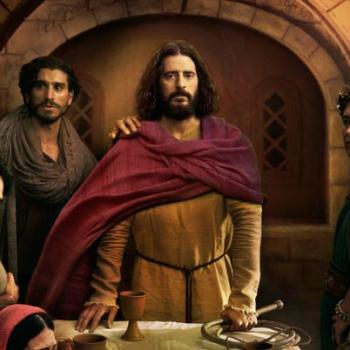 By Barbara R. Nicolosi
By Barbara R. Nicolosi
The entertainment industry is in the full throes of the changing of the generations; films and television are beginning to reflect the visions of Generation Xers like Jason Reitman (Up in the Air), Judd Apatow (Knocked Up), the fresh, young voices at Pixar (Up, The Incredibles), and other young artists who dare to buck the tired irony-cool cynicism that has shaped and stifled too much of the culture. Suddenly, after decades of being shut out, minimized, or mocked, film characters have room in their lives for optimism, and even something almost like faith. The Church, if it seeks to be relevant in the future, needs to welcome this development and encourage -- even patronize -- such talents.
Pope Benedict XVI, who has an artist's heart, seems to realize this; he recently met with artists to discuss the role of beauty in the health of the world. That is a start, but more is needed. The Boomers' exit from cultural influence creates a two-sided pastoral challenge for the 21st-century Church.
First is the effect on the gargantuan Boomer generation of a lifetime of listening almost exclusively to their own voices. The movies being created by and for the Boomers today are a very unentertaining mix of "Never regret! Life starts at 70!" and "Life is a cruel joke, ‘full of sound and fury, signifying nothing.'" Movies like It's Complicated showcase a bunch of grey hairs still acting badly, swallowing their shame, and ignoring their appropriate role as the wise mentors of the younger generations. The Dorian Greyish dark echo of this kind of story, are movies like There Will Be Blood and the chillingly titled No Country for Old Men, in which the characters' lives of narcissism and greed devolve into cynicism and brutality.
As an institution charged with saving souls, the Church's urgent outreach to fading Boomers must encourage them to face and take responsibility for the mistakes they have made. If they would be saved, the Boomer Generation must be guided into repentance for the way they self-righteously sacrificed all others as they fled from the simple heroism of adult human life. The rigid eradication of tradition, the gross materialism, the unbridled license, the embarrassing promiscuity -- all always accompanied by shrill distortion and denial -- have left our society disconnected, bloated, poorly educated, unable to trust, and simmering in resentment. I see many of my Millennial Generation students clamoring to set back the clock to a day before the Sixties, when there were grown-ups.
The Church's secondary, but equally urgent pastoral challenge, is with the younger generations. Do not think me flippant in suggesting that pastors and teachers of the faith must quickly provide substantive, moral reasons for GenXers not to euthanize the Boomers; for them, the Entitled Generation will quickly morph into the Expensive Generation as they and Millennials are bent low under the weight of social programs that were strapped on their backs without their consent.
History is devastatingly cyclical. The Boomers made the case that they should end their marriages and abort their children for the God Expediency. Their children, stripped of any attachment to a moral framework, will eye the old grey hairs, drooling and in diapers -- but certainly still sneering -- and consider expedient "Death with Dignity" to be a sensible and pragmatic policy. The Church must use all media to reach these new cultural power brokers, and to penetrate the commanding subconscious voices of their parents; she must teach them that the breakdown of the Boomers will require patience, heroism, and long-suffering.
How can we help the younger generations break out of the resentment and emotional disconnect that has come from being the children of the Boomers? Decades of being abandoned, let down, and embarrassed has engulfed us in a new society that sneers at its own impulse to hope and dream. Survey most of the "adult" characters in today's popular entertainment for a scary cultural temperature. The parents in the global phenomenon Twilight are immature, emotionally needy, and insecure. The "adults" in Harry Potter's world are mostly needy, clueless, and ultimately oppressive to the younger generation.
I suspect the only way to reach the Millennials and Gen Xers, from a spiritual standpoint, will be with a powerful, renewed ethic of the value of suffering and the urgent need for forgiveness. We need hero stories perhaps more urgently than any generation of humanity that has come before.




